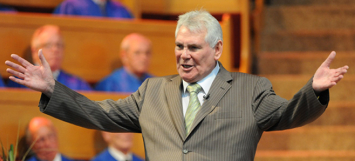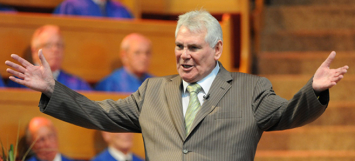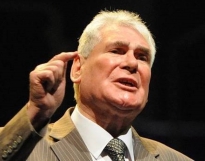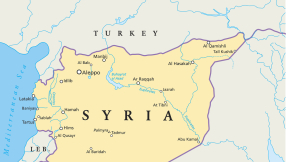Pastor James McConnell has been acquitted by a Belfast court of sending a 'grossly offensive' message in a sermon about Islam broadcast on the internet. This is a significant victory for common sense and free speech, though many will wonder why the case ended up in court at all. The Public Prosecution Service now needs to issue clear guidance to ensure that others are not subjected to a similar ordeal.
The case has sparked global legal and media interest, not least because McConnell is an outspoken and charismatic personality. But more importantly, the case is about freedom of speech and religion and an attempt by the State to censor sermons.

Pastor James McConnell is a 78-year-old retired pastor suffering from cancer. One Sunday in May 2014, he preached a sermon on Christ being our mediator and ransom, in which he called Islam 'heathen' and 'satanic'. The sermon was streamed on the internet.
The comments were picked up by the media and complaints were subsequently made to the police, who launched an investigation into whether there was a 'hate crime motive' behind the pastor's remarks. The police decided not to seek prosecution under hate crime legislation. However, prosecutors decided the pastor had sent a grossly offensive message under the Communications Act 2003. This legislation is designed to deal with offensive and abusive letters, emails and phone calls. To apply this legislation to an online sermon was a significant stretch.
The pastor was offered an 'informed warning', which he declined as it would be an admission of guilt and would create a criminal record lasting a year. Instead he faced a three-day trial and the possibility of up to six months in prison if he was found guilty.
A key aspect of the case was determining what McConnell had said that was 'grossly offensive'. The prosecution accepted that characterising Islam as 'heathen' and 'satanic' would be theological views protected by human rights legislation. This concession is helpful, but needs to be clearly stated in a guidance note to protect others.
During his sermon, the pastor said: "People say there are good Muslims in Britain. That may be so, but I don't trust them." Those last five words were the 'grossly offensive' speech.
Both sides insisted these words must be seen in context - context is everything. The prosecution showed subsequent media interviews arguing that the pastor was categorising an entire people group in a way that was offensive. The defence insisted on playing the whole two-hour pentecostal worship service, arguing that to be offended any listener would have had to sit through three hymns, two prayers, various Bible readings and the rest of the sermon on the supremacy of Christ.

The prosecution decided not to call Dr Raied Al-Wazzan of the Belfast Islamic Centre, who was thought to be the main complainant. He had previously caused controversy himself by publicly praising Islamic State for making the city of Mosul "the most peaceful city in the world".
McConnell had a Catholic priest, a Muslim cleric and a DUP MP lined up to speak in his defence, though not all were called. The judge reserved his decision, leaving him to face Christmas uncertain as to whether the new year would involve a prison sentence.
In the end justice has been done, but this is a prosecution that should never have been brought. The verdict is a victory for common sense, freedom of speech and freedom of expression. However, until the law is changed or clear guidance is issued there will be concern about further prosecution. Despite his age, Pastor James McConnell had the resources to fight this charge, but others might not be in that position. The Public Prosecution Service needs to explain why this case was brought and assure everyone that it will not happen again.
This case contains challenges to both the State and the Church. It's vital that the State does not stray into the censorship of church sermons or unwittingly create a right not to be offended. Meanwhile, the Church must steward its freedom of speech wisely to present Jesus in a gracious and appealing way. The gospel will be offensive to many, but we must be careful not to add to that.
Peter Lynas is a former barrister. He leads the work of the Evangelical Alliance in Northern Ireland and serves on the leadership team at Causeway Coast Vineyard. Follow him on Twitter.

















